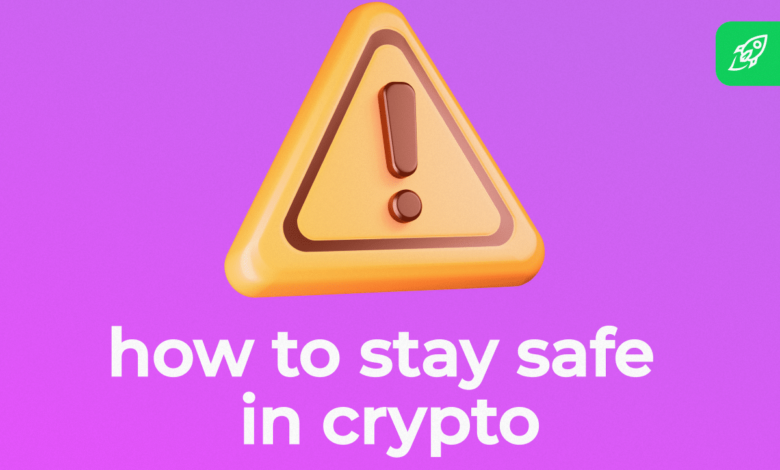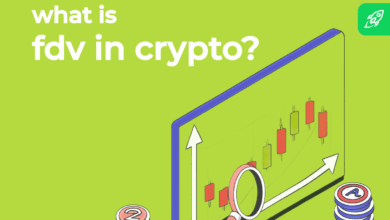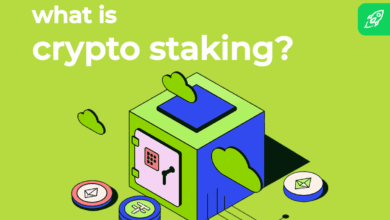How to Spot, Report, and Avoid – Cryptocurrency News & Trading Tips – Crypto Blog by Changelly

In today’s digital world, online security matters more than ever. With the increasing prevalence of social media and online financial transactions, the risks of scams and fraud are at an all-time high.
Hi, I’m Zifa, a passionate crypto enthusiast and writer. For over three years, I’ve explored the crypto world, often coming across various scams. In this discussion, we’ll focus on security in the crypto sector, examine well-known scam tactics, and learn how to safeguard your funds. Let’s get started on this journey to safer crypto experiences!
What Is a Scam?
This is not a new concept: scams appeared long ago, but in the world of cryptocurrency, this notion has acquired a new meaning.
Within the cryptocurrency community, the word ‘scam’ is often applied to dubious startups and initial coin offerings (ICOs). When the project seems to lack any practical usefulness and the business idea behind it is suspicious, such ICOs are often referred to as scams.
So, a scam is a fraudulent investment project that either became bankrupt in the course of existence or was conceived as a fraud from the very beginning. Thus, there are two types of scam projects: the ones that brought investors some profit and then stopped existing and the ones that gathered investors’ money and simply disappeared.
How Do Scams Happen?
There are several ways for scams to unfold:
- Ponzi scheme. It exists at the expense of new investors. When there are no investors anymore, the project collapses. The most notorious Ponzi scheme is Onecoin – learn more about this scandalous project here.
- Fake project (pure scam). Its task is to collect a huge amount of money from investors and then simply close. Founders will withdraw all funds from the project account and evaporate.
- Hacker attack. Hackers can compromise accounts, wallets, email, and more. Stolen funds are withdrawn to fraudulent accounts and wallets and then dissolved in the darknet. In many cases, it’s not the founders’ fault, but if there are no insurance funds or ways of recovery, the investors lose their money.
- Technical error. This is also a rare cause of scams, but things happen. When something breaks and goes wrong in the blockchain, investors lose their money. In worst cases, projects with serious technical faults close.
- Pump and Dump. This scam scheme in crypto involves artificially inflating the price of a cryptocurrency (pump) through coordinated buying, often by spreading false or misleading information, and then selling off the assets at the inflated price (dump) to profit before the inevitable market correction. This manipulative strategy exploits unsuspecting investors and can lead to significant financial losses.
What else could negatively impact your investment?
- Project failure. Some projects do not survive during the stage of implementation. They might successfully go through the closed pre-sale of tokens, pre-ICO, ICO. And that’s it. If investors have some coins left, this cryptocurrency might be worth something. Occasionally, coins of failed projects do not represent any value at all.
- Panic of investors. It’s a rare occasion, but sometimes, there are situations that force everyone to get rid of acquired tokens at once. Therefore, the cryptocurrency falls sharply in price, which makes the project leave the scene.
- Lack of cooperation. Some startups and projects are created via the collaboration of several companies. When the interests of partners don’t coincide, problems begin. And most often, those are investors who suffer.
How to Identify Crypto Scam
Identifying whether a crypto project is legitimate or a scam requires careful analysis and attention to several key factors. Here’s what you should consider before investing in a new meme coin or any crypto project, especially to avoid pyramid schemes:
- White Paper and Project Roadmap: Examine the project’s whitepaper for clear objectives, technical details, and a realistic roadmap. Vague or overly ambitious plans can be red flags.
- Community and Communication: Evaluate the project’s presence on social media and forums. A strong, active community and open, consistent communication from the project team are positive signs.
- Tokenomics: Understand the token distribution, supply, and application in the ecosystem. Be cautious if a large portion of tokens is held by a small number of wallets.
- Audit and Security: Check if the project has undergone any smart contract audits by reputable firms. This helps ensure the code is secure and functions as intended. Also, check the crypto project in question for KYC audits. This involves a thorough examination of the project’s compliance with Know Your Customer regulations. The process ensures that the project has implemented effective measures to verify the identities of its users, promoting transparency, security, and regulatory adherence within the cryptocurrency ecosystem. Learn more about KYC importance in this article.
- Regulatory Consideration: Assess if the project complies with applicable regulations. Be cautious of signs like guaranteed investment returns, unclear or absent Terms of Use, or a lack of Anti-Money Laundering (AML) measures. Failure to comply may result in legal complications and impact the project’s sustainability.
- Market Performance and Listings: Inquire into the coin’s performance on the market and the exchanges that list it. Be wary of coins only listed on obscure or low-reputation exchanges.
- Avoid High-Return Promises: Be extremely cautious of projects promising high or guaranteed returns, a common trait of pyramid schemes.
- Check for Signs of a Pyramid Scheme: Be skeptical of projects where earnings are primarily based on recruiting new participants instead of the sale of a legitimate product or service.
- Seek Advice: Consider seeking advice from financial advisors or experienced crypto investors, especially if you’re new to the space.
Remember, investing in cryptocurrencies always carries risks, and thorough due diligence is crucial to making informed decisions.
What Are the Famous Crypto Scams?
The world of crypto scammers is vast and often marked by a surprising level of creativity. Despite this, several schemes repeatedly used by scammers have become infamous in the crypto community. From classic pyramid schemes to sophisticated phishing attacks, these scams exploit various vulnerabilities. We’ve delved into the most notorious ones in our comprehensive article here.
Navigating Twitter Scams
Twitter, a platform for instant communication and news, is unfortunately also a breeding ground for scams. That said, the Changelly team warns of the growing number of impostors and fraudulent schemes on social media.
Recognizing Twitter Scams
Impostors often create accounts that mimic legitimate ones, using slightly misspelled usernames or logos. They may reply to genuine tweets or threads, creating an illusion of authenticity. These scams typically promise token giveaways or request token deposits, luring unsuspecting users with the prospect of easy gains.
Avoiding the Traps
The first line of defense is vigilance. Always verify the Twitter handle, especially for accounts claiming to represent known entities like popular exchanges or crypto projects. Be cautious of verified accounts too, as they can still be misleading. Remember, genuine businesses will not solicit tokens or personal information through social media.
Avoid falling prey to FOMO (fear of missing out). Offers that seem too good to be true often are. So, before engaging in any offer, take a moment to research and verify its legitimacy. When in doubt, it’s always better to err on the side of caution.
Where Should I Report Scams?
If you find yourself a victim of a crypto scam, don’t panic. Take a deep breath and know that you can address the situation. Begin by documenting all relevant information about the scam, and then follow these steps to report the incident and warn others. Your actions can not only help in possibly recovering your losses but also prevent others from falling into similar traps.
Here are some steps to take:
- Social Media Ban: Contribute to a safer online environment by reporting deceptive accounts and posts on social media for platform action.
- Dedicated Scam Reporting Platforms: Various platforms allow reporting crypto scams. One such platform is Chainabuse, where you can report scams and verify the legitimacy of the project in question.
- Cryptocurrency Exchanges: If the scam involved a particular exchange, inform them. They might take action against the scam project.
- Local Law Enforcement: Report to your local police or law enforcement agency, especially if you suffered significant financial loss.
- Internet Crime Agencies: Report to organizations like the Internet Crime Complaint Center (IC3) in the US for online fraud.
- National Financial Authorities: Contact regulatory bodies like the SEC (in the US) or FCA (in the UK), depending on your location.
- Online Forums and Review Sites: Share your experience on platforms like Reddit, Trustpilot, and other crypto-focused forums. Your report will likely help others researching the project.
By starting with community-based platforms and working up to formal agencies, you can both warn potential future victims and seek official assistance.
FAQ
Are there fake crypto exchanges?
Yes, there are many fake crypto exchanges. Scammers often create counterfeit cryptocurrency trading platforms or imitate official crypto wallets to deceive people.
These fraudulent websites typically use domain names that slightly differ from legitimate ones, making it challenging to distinguish them at first glance. To stay informed about such scams, refer to resources like Crypto Chain University, which maintains a list of scam crypto projects and has a reporting form for such cases.
Can I recover money from a crypto scammer?
Recovering money from a crypto scammer is usually very difficult and depends on various factors. The chances of recovery hinge on the specifics of the scam, the methods used by the scammer, and how quickly you respond after discovering the scam. Prompt action and reporting the scam to the relevant authorities are crucial, but still, there is no guarantee of recovery.
How do I know if a crypto site is legit?
To verify the legitimacy of crypto sites, especially less popular projects, scrutinize everything from the website’s spelling to the relevance and functionality of the product. If you find fraudulent patterns similar to known scams, it’s a red flag.
For more established projects, ensure you are accessing their official website or social media channels. Pay close attention to the spelling and look for any extra symbols in the name or web address that might indicate a fake site.
You can also check reviews on dedicated platforms, like Chainabuse. This particular platform offers a dual function, allowing you to report scams and verify the legitimacy of the concerned project.
About Changelly
Changelly is a renowned user-friendly crypto exchange platform that has been operational since 2015. Our mission is to offer a seamless and enjoyable crypto exchange experience to our users. Recognizing the importance of security in this dynamic industry, we highly emphasize robust security measures to build trust and maintain our position as a reliable player in the market.
Please be aware that our official platforms are:
Website: https://changelly.com/
Blog: https://changelly.com/blog
Twitter: https://twitter.com/Changelly_team
Telegram: https://t.me/changelly
Instagram: https://www.instagram.com/changelly_team/
YouTube: https://www.youtube.com/@Changellyteam
These are our only official sites. However, be vigilant as scammers sometimes pose as us, offering exchange services or enticing you with incredible raffles through unofficial accounts.
Always take care to confirm you’re dealing with our official channels and keep your investments secure. Let’s work hand in hand to create a more welcoming and honest crypto community!
Disclaimer: Please note that the contents of this article are not financial or investing advice. The information provided in this article is the author’s opinion only and should not be considered as offering trading or investing recommendations. We do not make any warranties about the completeness, reliability and accuracy of this information. The cryptocurrency market suffers from high volatility and occasional arbitrary movements. Any investor, trader, or regular crypto users should research multiple viewpoints and be familiar with all local regulations before committing to an investment.





